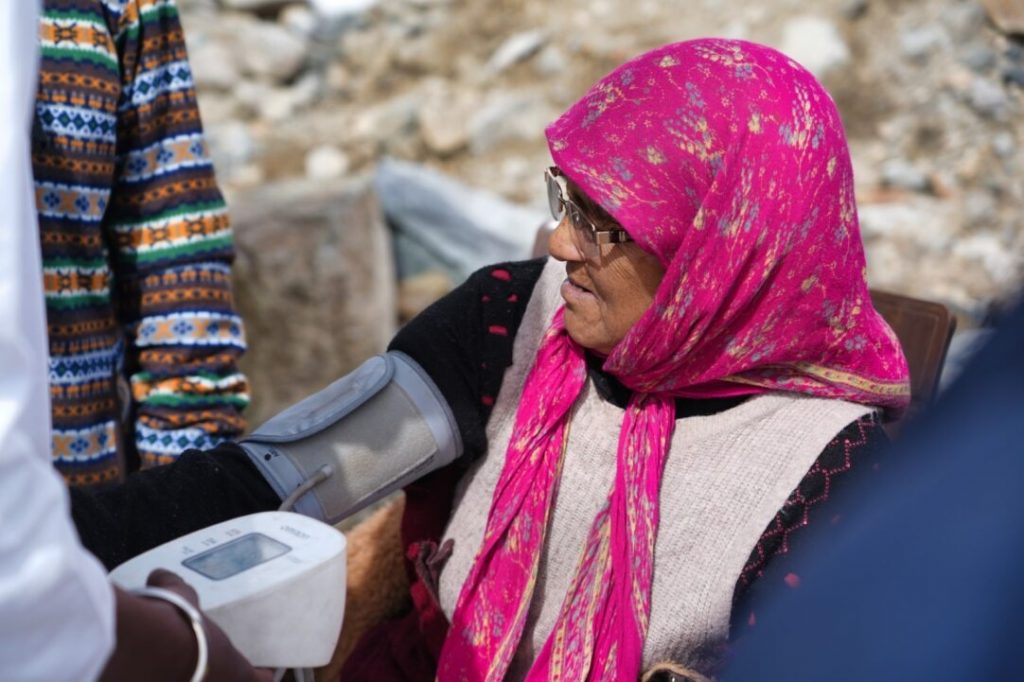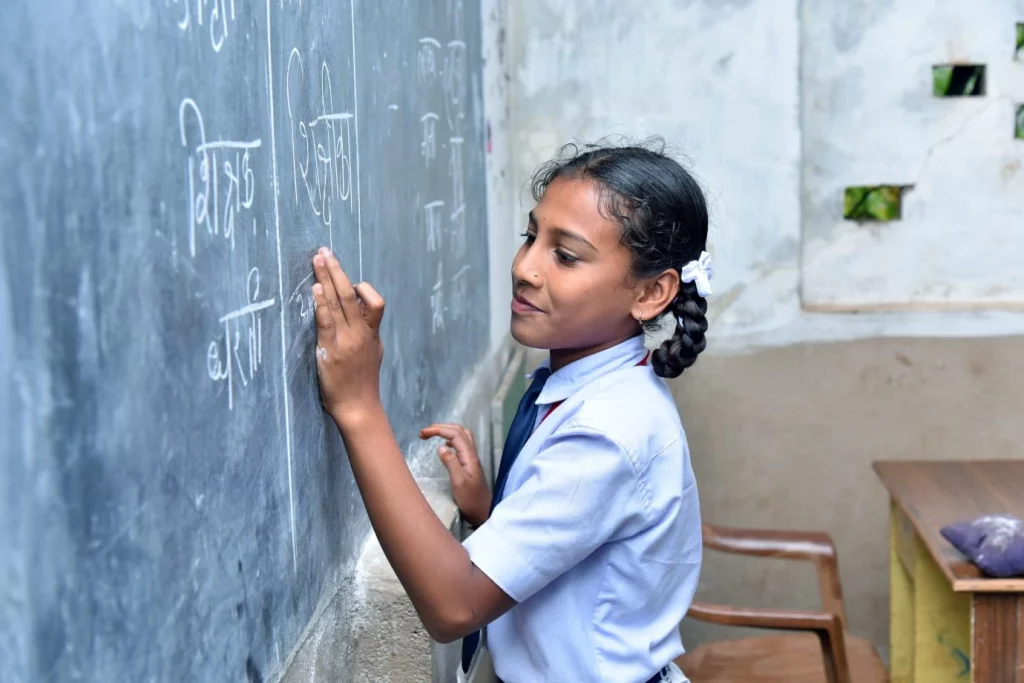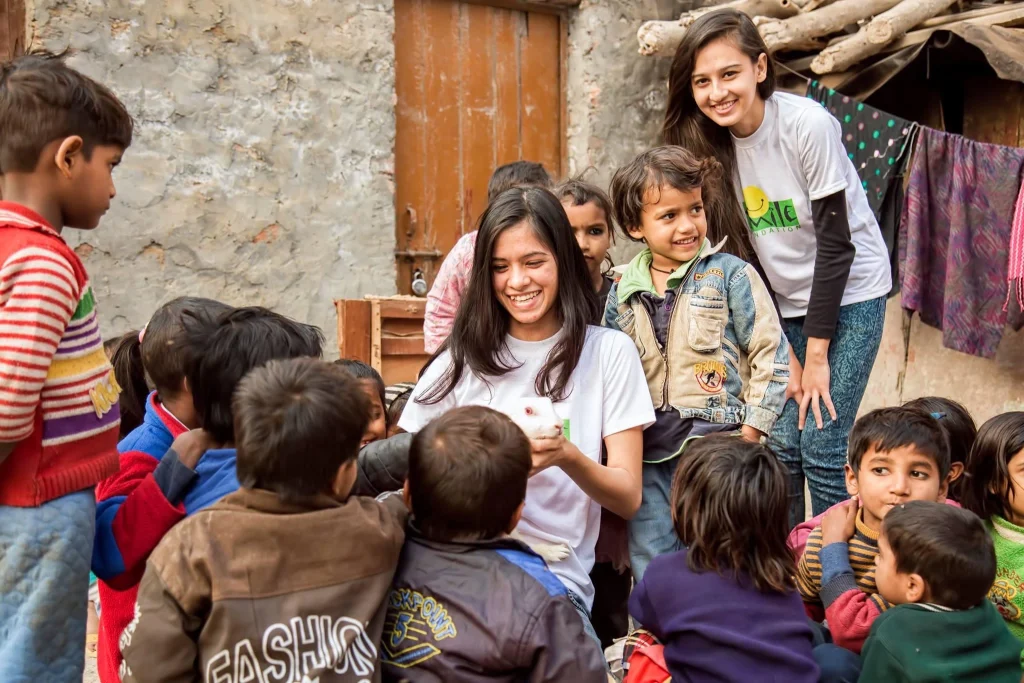As humans, we need reassurance that we are worth something. We feel secure and confident when someone empathises with us. To be able to understand others and be understood emotionally, helps an individual grow.
We are social creatures who seek comfort from others. Lack of human interaction affects a person adversely. Development of these socio-emotional skills helps an individual comprehend themselves and others.
Children show signs of emotional and social development early on. Giggling and laughing when the parent is and crying if they are uncomfortable are all signs of expressing and developing emotions. Nurturing the socio-emotional needs of children is extremely important for their all-round development and living the full spectrum of human emotions.
Discrimination that Children of Low-income Families Face
“They think we are dirt because we clean dirt”
– Untouchable, Mulk Raj Anand
India is a highly diverse country with more than a hundred languages, thousands of castes, and even more sub-castes. We still observe disparities based on caste, class, religion and background– more openly in conservative spaces and through micro-aggressions in more urban spaces.
For years the marginalized communities in India have been fighting for their fundamental rights including the right to be educated. The Right to Education Act (RTE Act), 2009, was a stepping stone for children of marginalized communities to gain knowledge, yet a significant number of students from these communities drop out due to the way they are treated.
Today when we come across children of disadvantaged groups claiming that they are not being treated equally and are sometimes disliked by their classmates in certain instances, we have to realise that it doesn’t solely affect their ability to learn, but also compromises the socio-emotional needs of the children. The deep-rooted discrimination these students face needs to be immediately acted upon.
Social-emotional Learning (SEL) in Children
The part of education that consists of the emotional and social development of a child is often overlooked. Education should provide the child with an all-encompassing understanding of the world and socio-emotional needs are an important factor in achieving that. SEL is of great importance in a child’s educational trajectory.
Promoting SEL leads a student to be highly motivated and interested in the learning process by stimulating self-control skills, empathy, and problem-solving skills. Consequently, it boosts a student’s academic success and lowers the rate of dropping out of school altogether.
The bias people carry with them regarding marginalised communities and disadvantaged groups affects the sense of belonging of these students as well. A small example can be reservation. The competition present in educational institutions often makes students from the general category a bit wary about reservations and this can lead to unpleasantness among students. Disadvantaged students may be alienated which will have adverse effects on their mental health and they are at a heightened risk of exhibiting poor socio-emotional skills.
Socio-emotional skills are a major determinant in how well a student performs academically, their happiness, ability to express and understand emotions of self and others, and their self-esteem, among other factors.
Why SEL is Important for These Children?
Students from low-income families may have to work to provide whatever additional income they can in addition to schooling, and some may live in unhealthy conditions and have poor health. Every child comes from a different background, no two children start equal, and it is not their fault. And because of this, educators need to better understand every student as a whole and where they come from to focus on socio-emotional support.
Bridging the gaps between students is imperative to make education equitable. SEL helps disadvantaged students understand and express themselves. They face different circumstances simply because they belong to a marginalised community and it is not fair in any sense. Obliviousness to the importance of the socio-emotional needs of these students is another factor that has hindered of proper implementation of RTE.
Educators need to be actively involved in the development of their students in every possible way. They have to understand the needs of students from disadvantaged groups and act accordingly and provide them with the support they need and deserve.
Ways To Support Socio-emotional Needs of Students
Students from marginalised communities might not receive the socio-emotional needs at home with their families. Educational institutions are the ideal place a student can receive and develop socio-emotional skills, hence, the education system should not overlook the significance of these and treat it at par with other aspects of education. Socio-emotional learning activities are an effective way to enhance the development of socio-emotional skills in students.
Activities that promote working in groups for disadvantaged students to not feel alienated and develop good communication skills are one.
Debates and active class discussions allow kids to develop and express their opinions in front of everyone and boost their confidence. Marginalised communities still tend to have their voices hushed and small activities like these can make them realise that their opinions matter.
Teaching students to appreciate themselves and their peers for achievement, however small it may be, amplifies self-esteem. Where criticism is equally crucial for a child to handle defeat maturely, appreciation allows them to not feel worthless.
Making Space for Every Child: Addressing Socio-emotional Needs of Students
Addressing the socio-emotional needs of underserved children can lead to a more equitable society. Reducing social inequalities and providing opportunities for all children, regardless of their background, fosters a sense of inclusivity and social cohesion as we attempt to do in our Mission Education (ME) programme.
Neglecting the socio-emotional needs of children can lead to adverse outcomes, poor learning and limited access to healthcare. By providing the necessary support, we can enhance the overall well-being of these children, setting the stage for a healthier and more productive future.
When children are provided with essential socio-economic support, they are less likely to engage in negative behaviours or become involved in crime. A safer community can be fostered by giving children the resources they need to thrive.
Every child has the potential to be a future leader and contribute positively to society. By nurturing and supporting children from all socio-economic backgrounds, we can create a generation of empowered and compassionate leaders who can bring about positive change.
Taking care of the socio-emotional needs of children from lower-income groups is not only a moral imperative but also an investment in the future of society as a whole. It lays the foundation for a more equitable, prosperous and harmonious community.
You too can choose to make the lives of these children empowered and dignified by making a small donation towards their quality education and well-being here.











One reply on “The Socio-emotional Needs of Children from Low-income Families”
True!